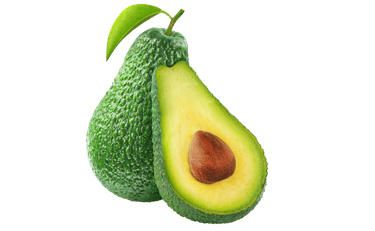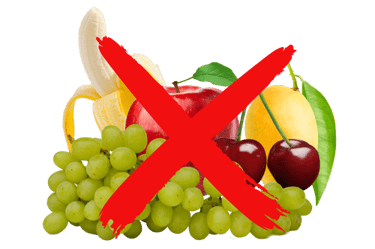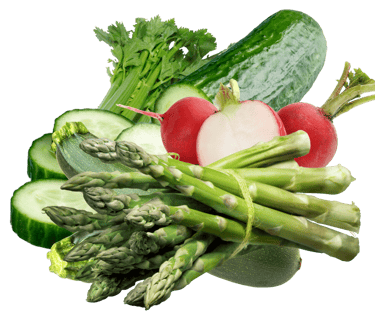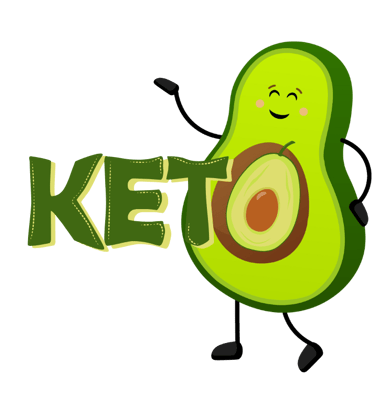Ultimate Guide to Low-Carb Vegetables & Fruits: Your Comprehensive Keto Diet Guide
Discover the ultimate guide to low-carb vegetables and fruits for keto success. Learn which produce fuels your diet, maximizes nutrition, and helps you stay in ketosis without sacrificing flavor. Perfect for beginners and seasoned keto dieters alike!
SPECIAL DIETS
Shari Smith
12/7/20248 min read
This post may contain affiliate links, and I may earn a commission if you choose to make a purchase through them.


My Keto Journey Begins
Let me be honest - when I first started the ketogenic diet, I thought I'd have to say goodbye to fruits and vegetables forever. When it comes to low-carb vegetables and fruits, understanding their impact on your ketogenic diet can make the difference between success and frustration.
Visions of sad, produce-less meals danced in my head. But here's the good news: you don't have to completely break up with fruits and vegetables!
I remember sitting in my kitchen, desperately missing my morning banana, wondering if there was any hope for produce lovers on a low-carb diet.
Spoiler alert: there absolutely is! This guide is everything I wish I'd known when I started my keto journey.
What to Expect in This Low-Carb Vegetables and Fruits Guide
Navigating the world of low-carb vegetables and fruits can feel like walking through a nutritional minefield. If you're starting a ketogenic diet, struggling with weight loss, or simply want to make smarter food choices, you're in the right place.
In this comprehensive guide, you'll discover:
Exactly which fruits and vegetables won't derail your low-carb goals
The science behind carbohydrate metabolism
Practical strategies for incorporating produce into a ketogenic lifestyle
Surprising nutritional secrets about low-carb produce
Personal insights and real-world tips from someone who's been in your shoes
Get ready to transform the way you think about fruits and vegetables - no boring diet advice, no complicated jargon, just practical, empowering information that can help you achieve your nutritional objectives.
Grab a notebook (or your phone), and let's dive in!
Understanding Low-Carb Vegetables and Fruits in Keto
What Exactly is the Ketogenic Diet?
The ketogenic diet isn't just another fad - it's a powerful metabolic approach that transforms how your body produces energy. Instead of running on carbohydrates, your body learns to burn fat as its primary fuel source. Think of it like switching your body's engine from regular gas to a high-performance alternative fuel.
Key principles include:
Dramatically reducing carbohydrate intake
Increasing healthy fat consumption
Maintaining moderate protein levels
Achieving a state called "ketosis"
Maximizing Your Health: The Long-Term Benefits of Low-Carb Vegetables and Fruits
Embracing low-carb vegetables and fruits isn't just about weight loss - it's about transforming your entire approach to nutrition. These nutritional powerhouses offer a holistic approach to health that goes far beyond simply counting carbs.
Sustainable Wellness Through Smart Produce Choices
Low-carb vegetables and fruits provide a nutrient-dense alternative to traditional high-carb options. By carefully selecting these foods, you're not just managing your weight - you're:
Boosting your body's natural inflammation-fighting capabilities
Supporting metabolic health
Maintaining steady energy levels
Protecting your long-term cardiovascular health
Enhancing your body's natural detoxification processes
Beyond Keto: A Lifestyle of Nutritional Intelligence
The principles of selecting low-carb vegetables and fruits extend far beyond the ketogenic diet. You'll develop a nuanced understanding of nutrition that serves you for life. It's about learning to read labels, understand your body's unique nutritional needs, and make informed choices that support your overall wellness.
A Final Word of Encouragement
Your health is a journey, not a destination. Low-carb vegetables and fruits are powerful allies in this journey - tools that empower you to take control of your nutrition, energy, and overall well-being. Embrace them with curiosity, patience, and compassion for yourself.
Remember, it's not about perfection. It's about making better choices, one bite at a time.
Disclaimer: Always consult with a healthcare professional before making significant changes to your diet, especially if you have pre-existing health conditions.
Low-Carb Vegetables (Sorted by Net Carbs per 1-cup serving)
Green Leafy Vegetables (Lowest Carb Options)
Spinach (0.4g net carbs)
Kale (1.4g net carbs)
Arugula (0.5g net carbs)
Swiss chard (1.3g net carbs)
Lettuce (0.5-1g net carbs)
Cruciferous Vegetables
Cauliflower (2.3g net carbs)
Broccoli (3.6g net carbs)
Brussels sprouts (3.3g net carbs)
Cabbage (2g net carbs)
Bok choy (1.2g net carbs)
Low-Carb Vegetable Superstars
Zucchini (2.4g net carbs)
Cucumber (1.5g net carbs)
Asparagus (2.4g net carbs)
Celery (1.4g net carbs)
Radishes (1.5g net carbs)
Additional Low-Carb Options
Bell peppers (3-4g net carbs)
Mushrooms (2g net carbs)
Avocado (1.8g net carbs)
Eggplant (2.3g net carbs)
Butternut squash (small portions, 5g net carbs)
Low-Carb Fruits (Sorted by Net Carbs per 1/2-cup serving)
Berry Family (Keto's Fruit Superstars)
Raspberries (3.3g net carbs)
Blackberries (3.1g net carbs)
Strawberries (4.7g net carbs)
Blueberries (small portions, 8.5g net carbs)
Unique Low-Carb Fruits
Avocado (0.9g net carbs)
Coconut meat (2.5g net carbs)
Lemon juice (1.5g net carbs)
Lime juice (1.8g net carbs)
Starfruit (2.6g net carbs)
Careful Consumption Fruits
Watermelon (small portions, 5.4g net carbs)
Cantaloupe (small portions, 5.8g net carbs)
Peach (small portions, 6g net carbs)
Honeydew melon (small portions, 6.5g net carbs)
Fruits to Strictly Limit or Avoid
Bananas (high carb)
Grapes (high carb)
Apples (high carb)
Mangoes (high carb)
Cherries (higher carb)
Pro Tips:
Always measure portions
Track your net carbs
Consider your individual carbohydrate tolerance
Prioritize vegetables over fruits on a strict keto diet


















These low-carb alternatives aren't just about cutting carbohydrates - they're about transforming your nutritional approach using low-carb vegetables and fruits as powerful dietary tools.
Low-Carb Vegetables and Fruits: Your Strategic Substitution Guide
Pasta Alternatives Using Low-Carb Vegetables
Low-carb vegetables like zucchini and spaghetti squash offer incredible benefits:
Dramatically reduce carbohydrate intake
Increase vegetable nutrition
Provide volume and satisfaction without glucose spikes
Support weight management goals
Deliver essential micronutrients often missing in traditional pasta
Zucchini noodles, for instance, contain only 2.4g net carbs per cup compared to traditional pasta's 45g, making them a nutritional powerhouse in low-carb vegetable substitution.
Bread Alternatives: Leveraging Low-Carb Vegetables and Fruits
Innovative substitutes like cauliflower pizza crust and lettuce wraps:
Eliminate refined flour
Introduce more vegetable nutrients
Reduce overall caloric density
Support digestive health
Provide creative culinary experiences
Cauliflower, a low-carb vegetable hero, contains just 2.3g net carbs per cup while delivering significant vitamin C and antioxidant benefits.
Rice Alternatives: Low-Carb Vegetable Transformations
Replacing traditional rice with low-carb vegetable alternatives:
Reduces simple carbohydrate consumption
Increases fiber intake
Supports blood sugar management
Provides more complex nutritional profiles
Enhances meal satisfaction
Cauliflower rice offers a mere 2.3g net carbs per cup, compared to traditional rice's 45g, making it a strategic low-carb vegetable choice.
Potato Alternatives: Vegetable Nutrition Reimagined
Low-carb vegetable substitutes like cauliflower mash:
Minimize starch intake
Maximize nutrient absorption
Support metabolic flexibility
Reduce glycemic load
Introduce more diverse vegetable nutrients
Chip Alternatives: Low-Carb Vegetables as Snack Innovations
Vegetable-based chips:
Eliminate processed carbohydrates
Provide satisfying crunch
Introduce additional nutrients
Support weight management
Create guilt-free snacking experiences
Dessert Alternatives: Low-Carb Fruits as Sweet Solutions
Utilizing low-carb fruits like berries:
Satisfy sweet cravings naturally
Reduce refined sugar consumption
Provide antioxidants
Support metabolic health
Create nutrient-dense dessert experiences
The Broader Impact of Low-Carb Vegetables and Fruits
These substitutions represent more than dietary modifications - they're a holistic approach to nutrition. By strategically incorporating low-carb vegetables and fruits, you're:
Retraining your palate
Supporting metabolic flexibility
Introducing more diverse nutrients
Creating sustainable eating patterns
Empowering your nutritional choices
Expert Low-Carb and Ketogenic Diet Resources
Diet Doctor: Your Comprehensive Keto Guide
Website: Diet Doctor
Key Strengths:
Leading low-carb and keto information hub
Peer-reviewed nutritional research
Practical, actionable dietary guides
Why Diet Doctor Matters for Low-Carb Vegetables and Fruits Readers seeking in-depth, scientifically-backed information about low-carb nutrition will find Diet Doctor an invaluable resource. Their extensive research provides nuanced insights into how low-carb vegetables and fruits impact metabolic health.
Virta Health: Clinical Ketogenic Diet Experts
Website: Virta Health
Research Focus:
Groundbreaking clinical research on ketogenic diets
Metabolic health transformation studies
Evidence-based nutritional strategies
Virta Health's Contribution to Low-Carb Understanding Their clinical research offers unprecedented insights into how strategic selection of low-carb vegetables and fruits can support long-term metabolic wellness. The studies provide critical evidence for our dietary recommendations.
How to Use These Resources
Verify nutritional information
Explore detailed research
Understand the science behind low-carb eating
Discover personalized nutrition strategies
Pro Tip: Always cross-reference multiple authoritative sources when making significant dietary changes.
Metabolic Benefits:
Improved insulin sensitivity and better blood sugar control
Enhanced fat-burning capability and easier weight management
Reduced risk of developing type 2 diabetes
More stable energy levels throughout the day
Heart Health:
Lower blood pressure due to increased potassium intake
Reduced inflammation throughout the cardiovascular system
Better cholesterol profile with increased HDL (good) cholesterol
Decreased risk of heart disease and stroke
Digestive Health:
Increased fiber intake supporting healthy digestion
Better gut microbiome diversity
Reduced bloating and digestive discomfort
Improved nutrient absorption
Brain Function:
Enhanced cognitive performance and mental clarity
Reduced risk of neurodegenerative diseases
Better mood stability due to balanced blood sugar
Improved focus and concentration
Cellular Health:
Higher antioxidant intake protecting against cellular damage
Reduced oxidative stress throughout the body
Better cellular repair and regeneration
Slower aging process at the cellular level
Immune System Support:
Stronger immune response due to increased vitamin C and other nutrients
Better ability to fight off infections
Reduced risk of chronic inflammation
Enhanced healing and recovery
Physical Performance:
Improved endurance and stamina
Better muscle recovery after exercise
Reduced exercise-induced inflammation
Enhanced athletic performance
Long-term Disease Prevention:
Lower risk of certain cancers
Reduced likelihood of developing metabolic syndrome
Better protection against liver disease
Decreased risk of kidney problems
Making mindful choices about the fruits and vegetables we consume isn't just about counting calories or carbs – it's about creating a sustainable approach to long-term health and wellness.
When we focus on selecting nutrient-dense, low-carb produce, we're not just following a trend; we're investing in our body's future.
These smart choices help maintain stable blood sugar levels, support healthy weight management, and provide our bodies with essential vitamins, minerals, and antioxidants that contribute to overall vitality.
The key to sustainable wellness lies in creating a balanced relationship with our food choices. By incorporating a variety of colorful, low-carb vegetables and fruits into our daily meals, we can build eating habits that are both satisfying and nourishing.
Think of crisp bell peppers, leafy greens, juicy berries, and crunchy cauliflower – these foods not only add vibrant flavors and textures to our meals but also provide sustained energy and vital nutrients that support our body's natural functions.
The beauty of this approach is its simplicity and flexibility – it's not about strict rules or elimination, but rather about making informed choices that align with our health goals.
Moreover, choosing seasonal, locally sourced produce whenever possible adds another layer to our sustainable wellness journey. Not only does this practice support local farmers and reduce our environmental footprint, but it also ensures we're getting the freshest, most nutrient-rich foods available.
When we combine this mindful selection with proper storage and preparation methods, we maximize both the nutritional benefits and the enjoyment we get from our food. This approach to eating becomes less about restriction and more about nourishing our bodies while respecting both our health and the environment.
Vegetables and Fruits Net Carbs
Southern Spice Homestyle Delights © 2025. All rights reserved.
Address
Rayville, La 71269
Want more from Southern Spice?


Get recipes, cooking inspiration, and exclusive information right to your inbox!
Categories






